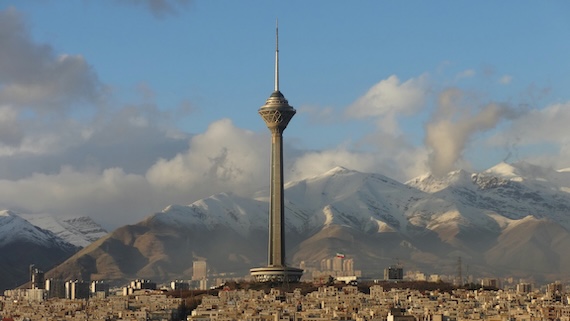( RFE/ RL ) – Amid soaring temperatures, power blackouts, and widespread water rationing, Pezeshkian painted a grim picture of the nation’s water woes. He warned that “there won’t be any water in the dams by September or October.”
Pezeshkian described the situation as “a serious and unimaginable crisis,” pointing to depleted reservoirs and underground sources.
Then, Netanyahu seized on Pezeshkian’s remarks with a direct video message to the Iranian people. Framing Iran’s “thirst for water” as akin to its “thirst for freedom,” the Israeli premier positioned his country as a potential savior, leveraging its expertise in water recycling and desalination.
“Once you are free from the tyrannical regime that oppresses you, we in Israel will be happy to help the people of Iran solve the water problem, among other things, and bring back water to your lives,” he said, mirroring comments he made in a video back in June 2018.
But Pezeshkian fired back, saying in a cabinet meeting and then on social media that Netanyahu was only promising a “mirage.”
” A regime that deprives people of Gaza from water and food says it will bring water to Iran? A MIRAGE, NOTHING MORE,” he said.
Over 100 organizations, including Oxfam and Doctors Without Borders (MSF), signed a letter this week urging Israel to end the “weaponization of aid” in Gaza, warning that starvation is worsening. They say they are increasingly blocked from delivering aid unless they meet new Israeli rules.
Why It Matters: Iran is grappling with a severe water crisis exacerbated by years of drought, decades of mismanagement, and climate change. Tehran risks running out of water in weeks, according to Iranian officials, with reservoirs like Karaj Dam at just 6 percent capacity. Nationwide, provinces face shortages, power outages, and rationing. This has led to office closures and calls for conservation.
Israel’s official reasoning for launching an aerial campaign against Iran in June was that Tehran’s nuclear program posed a threat to its existence. But the rhetoric from Netanyahu and other Israeli officials suggested that regime change was at least an aspirational aim.
What’s Being Said: Pezeshkian has found himself in hot water with hardliners, who accuse him of aiding Netanyahu’s rhetorical attacks on Iran with his comments about the water crisis.
“What should we do when our president has become the 12th player of the opposing team and passes the ball to the enemy?” Hamid Rasaee, a hard-line lawmaker, wrote on X, using a soccer analogy. “He’s not a traitor, but he is ignorant of the position he holds.”
Conservative pundit Ali Mousavi slammed Pezeshkian for his “thoughtless” comments, which he said “provided a platform for Israeli psychological operations and propaganda.”

Photo of Milad Tower, Tehran, Iran by hassan hedayatzadeh on Unsplash
Pezeshkian has defended himself, writing on X that “solving a problem begins with acknowledgment, not denial.”
The president’s supporters, meanwhile, have praised him for being “honest” with the public about the extent of Iran’s water crisis.
Expert Opinion: Damon Golriz, a lecturer at The Hague University of Applied Sciences, told RFE/RL’s Radio Farda that it is “hard to believe” Netanyahu’s “call to rise up and help with freedom” as Israelis had the chance to eliminate Iran’s Supreme Leader Ayatollah Ali Khamenei during the June war but did not.
“Experience shows that messages like this are broadcast on the verge of military action by Israel to weaken the morale of rulers,” Golriz said. “Both sides understand the temporary cessation of hostilities — the June cease-fire — is extremely fragile.”
That’s all from me for now.
Until next time,
Kian Sharifi


 © 2026 All Rights Reserved
© 2026 All Rights Reserved